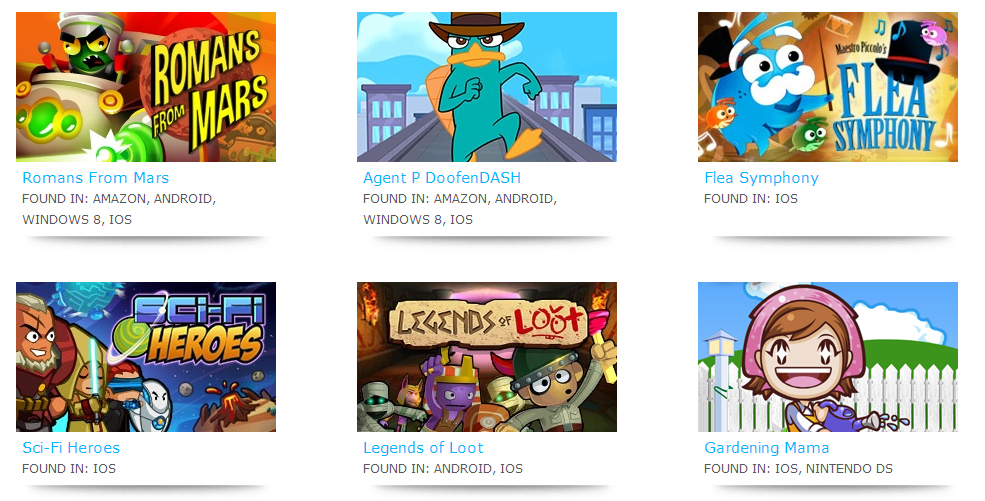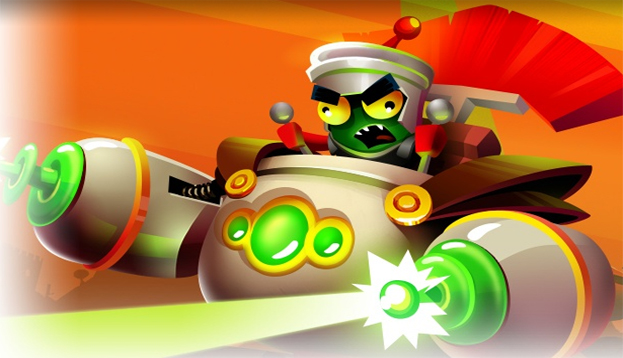If Majesco has a knack for one thing, it’s reinventing itself to pursue potentially profitable niches in the game market. Remember its line of Sega Genesis and Sega Game Gear hardware in the late 1990’s and early 2000’s? At one point the company looked to be on track to become a publisher of big budget console games, putting stake in the ground with a pair of high-profile if not ultimately blockbuster franchises with BloodRayne and Advent Rising. Today, it’s perhaps best known for a couple of hit game series under its belt with Cooking Mama and the Zumba line of fitness games.
It’s no surprise then that Majesco, with its opportunistic business philosophy, has turned focus to digital, mobile and social games. Earlier this month, the company made a move towards entering social casino games by acquiring Pariplay, which has expertise in real money social games. With mobile, Majesco has made fruitful first steps into the category. It seems to understand the mechanics of audience building for mobile games, where it’s all about player acquisition through the most efficient means possible then cross-pollination of that audience across other titles as a company grows its mobile game portfolio.
To that end, the way Majesco has approached mobile is to leverage popular licenses it controls, such as Zumba and Disney’s Phineas and Ferb. At the same time, it’s partnering with outside developers on original IP, working on a series of free-to-play titles like tower defense game Romans from Mars and action-RPG Sci-Fi Heroes that have a cartoonish art style, but with game play aimed at core mobile gamers.
Vince Vanasin, head of marketing at Majesco’s mobile game division, talked with us about the company’s mobile strategy. According to him, it started with building the right team.
“Majesco has been around for a long time, more than 20 years. When they decided they wanted to get in the mobile space, they started by building a team based out of L.A. from the ground up. They felt there was a lot of talent in L.A. that could help them be successful in the mobile space,” Vanasin told us.
The company’s first foray into mobile was with its strongest property, the Zumba license. Vanasin calls Majesco Zumba’s “shepherd” in games, having released a string of successful titles for console and handheld systems. Zumba Dance was the first mobile title, a premium priced $5 app available for iOS and Android. Majesco released it into the app store wild in July of this year, then watched as it hit the coveted iOS storefront as a featured app. It ultimately became a number one hit in the health-fitness iOS app category in 90 countries.
“It was the power of the Zumba brand – Zumba is so global and so widely loved,” Vanasin said. “When we do a licensed product it’s very different than original IP product. Licensed products have a built-in audience so what we try to do is leverage the work that the brand has already put in.”
“The other side as well is media and user acquisition,” he added. “We found a lot of success there, both because of the brand recognition, but also because the game is good. Zumba Dance has a four star rating and was featured by Apple. We think the combination of a high quality game and a really strong brand is what has led to the product’s success.”
Majesco is following the same formula with its upcoming game based on Phineas and Ferb, a popular youth-skewed — and arguably adult-adored — animated comedy that’s become a hit franchise for Disney. Majesco plans to tap into Disney’s marketing for the series wherever possible, including social media presence. It’s also making sure the game lives up the quality standard that Disney and fans are going to expect in a game based on the series, including being mindful of how parents will perceive it.
“[With] Agent P DoofenDASH, we’ve definitely worked closely with Disney to make a fun product that is in line with Disney’s brand priorities and guidelines. Since it’s based on Disney Channel’s hit franchise Phineas and Ferb, we wanted parents to feel comfortable giving this game over to their kids. From a monetization perspective we’re going to take all of the best practices from games in its genre and align those with Disney’s consumer guidelines to ensure a fun and safe gaming environment,” said Vanasin.
He added how while a lot of youth-skewed apps tend to offer pricey packs that seem to bait children and their parents with big one-time purchases, Majesco won’t be following that formula.
 Part of Majesco’s mobile game line-up
Part of Majesco’s mobile game line-upDuring our conversation, Vanasin seemed most excited about his division’s newest title, Romans from Mars. The free-to-play game based on original IP had a limited beta release, and has so far been well-received by beta users posting reviews on Google Play Store. Call outs for its unique visual style and production value are what jumped out after a quick glance of what user reviews seemed to like the most about the game. Vanasin said those are attributes that Majesco has been highlighting in its marketing.
“We think the game lends itself really well to a really casual, fun, and humorous voice. We have a great art style — it’s quirky and it’s funny. We’re definitely going to highlight that with a lot of compelling assets through social media, and hopefully consumers and players will gravitate towards it.”
As these games help Majesco get a foothold in mobile, we asked Vanasin what his strategy is in not only building but keeping an active player community around its mobile portfolio.
“For us these aren’t fire and forget games,” he said. “We want to put them out and continue to support players with robust updates. We want to build the Majesco mobile community, our beta tester community, and our overall audience. The phrase ‘games as a service’ gets thrown around a lot, but for us, it’s all about supporting the player, supporting our communities, and supporting our games by focusing on the player experience first.”

